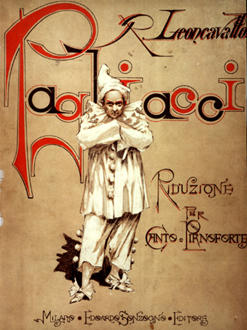
Pagliacci is an Italian opera in a prologue and two acts, with music and libretto by Ruggero Leoncavallo. The opera tells the tale of Canio, actor and leader of a commedia dell'arte theatrical company, who murders his wife Nedda and her lover Silvio on stage during a performance. Pagliacci premiered at the Teatro Dal Verme in Milan on 21 May 1892, conducted by Arturo Toscanini, with Adelina Stehle as Nedda, Fiorello Giraud as Canio, Victor Maurel as Tonio, and Mario Ancona as Silvio. Soon after its Italian premiere, the opera played in London and in New York. Pagliacci is the best-known of Leoncavallo's ten operas and remains a staple of the repertoire.

Joseph White Farnham was an American playwright, film writer, and film editor of the silent movie era in the 1920s. He was also a founding member of the Academy of Motion Picture Arts and Sciences.

Susan Essman is an American actress, comedian, producer and writer. She is best known for her role as Susie Greene on Curb Your Enthusiasm, Bobbi Wexler on Broad City, and the voice of Mittens in Bolt.
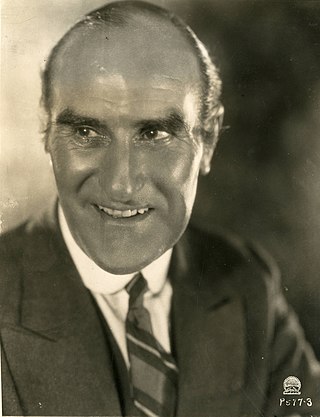
Ernest Torrence was a Scottish film character actor who appeared in many Hollywood films, including Broken Chains (1922) with Colleen Moore, Mantrap (1926) with Clara Bow and Fighting Caravans (1931) with Gary Cooper and Lili Damita. A towering figure, Torrence frequently played cold-eyed and imposing villains.

Chester Cooper Conklin was an early American film comedian who started at Keystone Studios as one of Mack Sennett’s Keystone Cops, often paired with Mack Swain. He appeared in a series of films with Mabel Normand and worked closely with Charlie Chaplin, both in silent and sound films.
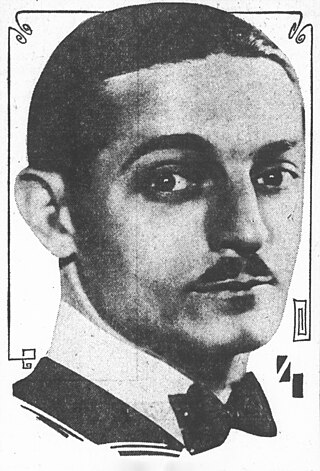
Lester M. Allen was an American actor, dancer, singer, comedian, and circus performer. After beginning his career as a child acrobat with the Barnum and Bailey Circus, he became a performer in minstrel shows, burlesque, and vaudeville. He worked as primarily a dancer and acrobat in the Broadway musical revues George White's Scandals and Ziegfeld Follies in the 1910s and early 1920s; ultimately progressing to singing and comedic acting parts. He starred as a comic actor in several musical comedies on Broadway during the 1920s and the early 1930s. He transitioned into work as a film actor, appearing in more than 15 films released from 1941 to 1950. He was killed after being struck by a motor vehicle in 1949.

Myrtle Stedman was an American leading lady and later character actress in motion pictures who began in silent films in 1910.

Dorothy Revier was an American actress.

Laugh, Clown, Laugh is a 1928 American silent drama film starring Lon Chaney and Loretta Young. The movie was directed by Herbert Brenon and produced by Irving G. Thalberg for MGM Pictures. A sound version of this film was released in the second half of 1928 and featured a synchronized musical score with sound effects. The film was written by Elizabeth Meehan, based on the 1923 Broadway stage production Laugh, Clown, Laugh by David Belasco and Tom Cushing, which in turn was based on the 1919 play Ridi, Pagliaccio by Fausto Maria Martini.

The Man Who Laughs is a 1928 American synchronized sound romantic drama film directed by the German Expressionist filmmaker Paul Leni. While the film has no audible dialog, it was released with a synchronized musical score with sound effects using both sound-on-disc and sound-on-film processes. The film is an adaptation of Victor Hugo's 1869 novel of the same name, and stars Mary Philbin as the blind Dea and Conrad Veidt as Gwynplaine. The film is known for the grotesque grin on the character Gwynplaine's face, which often leads it to be classified as a horror film. Film critic Roger Ebert stated "The Man Who Laughs is a melodrama, at times even a swashbuckler, but so steeped in expressionist gloom that it plays like a horror film."

Nikita Fyodorovich Balieff was a Russian Armenian vaudevillian, stage performer, writer, impresario, and director. He is best known as the creator and master of ceremonies of La Chauve-Souris theater group.

June Preston was an American child actress in the 1930s and early 1940s, who began her film career at RKO Pictures, with a minor role as Mrs. Blewett's daughter in the 1934 film Anne of Green Gables.

Joseph W. Girard was an American film actor. He appeared in more than 280 films between 1911 and 1944. He was born in Williamsport, Pennsylvania, and died in Woodland Hills, Los Angeles.
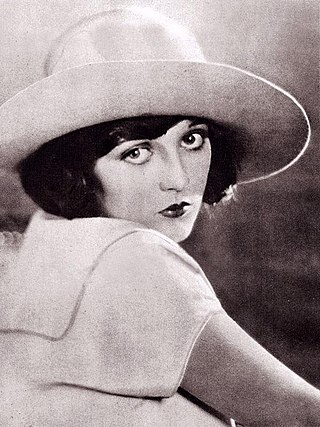
Dorothy Dwan was an American film actress.

Brandon Hurst was an English stage and film actor.

William Herbert "Bert" Woodruff was an American actor of the silent era.

Cesare Gravina was an Italian actor of the silent era who appeared in more than 70 films from 1911 to 1929.

Vladimir Sergeyevich Rosing, also known as Val Rosing, was a Russian-born operatic tenor and stage director who spent most of his professional career in the United Kingdom and the United States. In his formative years he experienced the last years of the "golden age" of opera, and he dedicated himself through his singing and directing to breathing new life into opera's outworn mannerisms and methods.
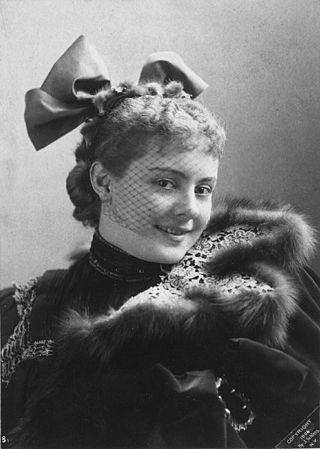
Cissy Fitzgerald was an English-American vaudeville actress, dancer, and singer who appeared in numerous silent and sound films. Fitzgerald acted in a popular Gaiety Girl show beginning in 1894 and was filmed in the role in 1896 in a self-titled short film shot by Thomas Edison's film company. She did not appear in films again until 1914 where she signed with the Vitagraph company and was quite popular in feature films and her own series of Cissy short films. Very little of Fitzgerald's silent material survives except her comic backup role in the 1928 Lon Chaney vehicle Laugh, Clown, Laugh.
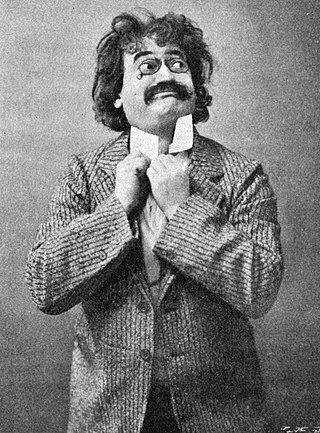
Rudolph Schildkraut (27 April 1862 – 15 July 1930) was an Austrian film and theatre actor.




















